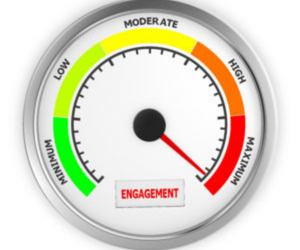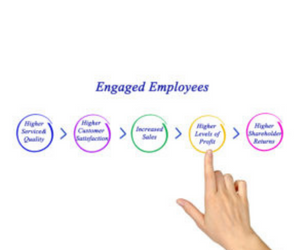Breast Cancer: Don’t Over diagnose, Do Improve Lifestyle
Avoid Overdiagnosis
When you screen a healthy population for breast cancer, you’re going to get over-diagnosis. This has become particularly evident. As screening practices switched from film-based mammography to digital mammography, we now can detect more small lesions. Only some of those small lesions that we are now detecting will grow into aggressive cancers. For 10-30% of the cases we find a lesion, we don’t necessarily need to cut it out or radiate it; we could follow it to see if it increases in size in a short period of time.
Overdiagnosis is particularly important for older women to consider. We don’t want the elderly woman to feel traumatized by being treated for an indolent lesion; especially when it will not prolong her life and increase her anxiety. Once she’s had lumpectomy and radiation for an indolent lesion, she’ll have follow-up tests for the rest of her life. Overdiagnosis means that she’s likely to endure all this for a condition that might have caused her very little trouble the rest of her life.
To Avoid Overdiagnosis, Only Do Risk-Based Screening
At the Breast Cancer Surveillance Consortium, we’ve developed the free BCSC Risk Calculator. It can be accessed from https://tools.bcsc-scc.org/bc5yearrisk/calculator.htm and downloaded . It’s also available for download to your iPhone from https://itunes.apple.com/us/app/bcsc-risk-calculator/id919034661?mt=8.
One of the goals of the Risk Calculator is to encourage health care providers to assess a woman’s risk before deciding to screen for breast cancer. We now know that it’s common for women to over- or underestimate breast cancer risk. With this tool, health care providers will have a much more accurate picture of a woman’s individual risk; they can then delay screening to a later age and/or screen those who are at low risk for breast cancer less often.
Instead of merely going by age, we can now also take into account other aspects of the patient. We can consider the individual’s ethnicity, breast density, and whether she’s had a first-degree relative with breast cancer. Another thing we could consider is whether she’s had a breast biopsy, and if so, the breast biopsy outcome. The Risk Calculator is free, simple, easy-to-use, and can decrease the risk of overdiagnosis by tailoring screening to a woman’s risk of breast cancer.
We Need a New Paradigm for Responding to Small Lesions
As it is, all small lesions are biopsied to determine if they are cancer. However, some lesions put women at risk for breast cancer, but are not themselves cancer. In the same sense that moderate hypertension is a risk factor for stroke, but hypertension is a condition, not a disease. Whether it’s a small lesion or moderate hypertension, the symptoms bear watching, but they’re symptoms, not the disease itself that requires aggressive treatment. Research is underway to monitor small lesions rather than removing all of them.
Lifestyle Modifications are Important for preventing Breast Cancer
The data are clear: if a woman is overweight or obese and reduces her weight, she’ll reduce her risk of breast cancer.
The data are also clear that exercise is important for risk reduction. She needs to be physically active for at least 20 or 30 minutes for 5 to 7 days per week. A brisk walk is good, taking the stairs, and vigorous housework such as gardening, vacuuming or sweeping will also help. Her goal should be movement as opposed to just sitting.
As for diet, there aren’t enough large-scale diet studies to allow us to say which diet is most protective against breast cancer. A Mediterranean Diet, one that’s high in fruits, vegetables, whole grains, legumes, and nuts, seems to hold some promise, but we aren’t in a position right now to be sure. What we do know is: if your patient is overweight, she needs to consume fewer calories, and whether she’s overweight or not, she needs to exercise 5 to 7 days a week.
Search Articles
Latest Articles
Ukraine’s Fate and the U.S. Election: A Perspective from the Front Lines
https://foreignpress.org/journalism-resources/ukraines-fate-and-the-us-election-a-perspective-from-the-front-lines Publication –foreignpress.org
New Life for Old Ambulances
https://foreignpress.org/journalism-resources/new-life-for-old-ambulances Publication –foreignpress.org
Prince Mario-Max Schaumburg-Lippe: Orphans International and James Jay Dudley Luce Foundation Celebrate 25 Years of Global Leadership
https://t2conline.com/prince-mario-max-schaumburg-lippe-orphans-international-and-james-jay-dudley-luce-foundation-celebrate-25-years-of-global-leadership Publication –t2conline.com
Mitzi Perdue: I Am An Assassination Attempt Survivor
Mitzi Perdue: I Am An Assassination Attempt Survivor About The PodcastThe newsmaker interviews and the news you need when time is short!
Subscribe to Updates
About Author

Mitzi Perdue is the widow of the poultry magnate, Frank Perdue. She’s the author of How To Make Your Family Business Last and 52 Tips to Combat Human Trafficking. Contact her at www.MitziPerdue.com
All Articles
Be the Person Others Want to Do Business With: Be fair
Be the Person Others Want to Do Business With: Be fairThe Beginnings of the Sheraton Hotel The international Sheraton Hotel Chain grew from an investment of just $1000. My father, his brother, and his college roommate received war bonuses after their military service...
Heart Disease In Women: It’s Different
Heart Disease In Women: It’s DifferentHEART DISEASE IS A WOMAN’S DISEASE In the 1950s, we all thought heart disease was a man’s disease. However, more women are dying of heart disease than men. Also, even though the mortality rates for both men and women are...
Prevent Nightmare House of Horrors: Family Business Quarrel, Part 2
Prevent Nightmare House of Horrors: Family Business Quarrel, Part 2 To prevent a Family Business Quarrel 1. Create a culture emphasizing that family members are part of something bigger than themselves. Being too self-centered is a danger in a family business....
Preventing Nightmare House of Horrors, a Family Quarrel, Part 1
Preventing Nightmare House of Horrors, a Family Quarrel, Part 1Since you’re here reading this, the subject probably hits close to home. If so, you have my entire sympathy. If ever there’s a high stakes situation, it’s the family quarrel in a family business. I’ve had...
Four Things Frank Perdue Did to Encourage Employee Engagement
Four Things Frank Perdue Did to Encourage Employee Engagement Employee engagement is one of the most important – possibly the most important factor in an organization’s success. When I look at how Frank Perdue (my late husband) built his chicken company from a...
Employee Engagement – Gallup Really Knows!
Employee Engagement - Gallup Really Knows!Visit Gallup, the People Who Really Know There are 1.3 billion full-time employees in the world. Give a guess: how many feel enthusiastic about and committed to their work? 1) 13% 2) 30% 3) 82% 4) How the heck could anybody...




